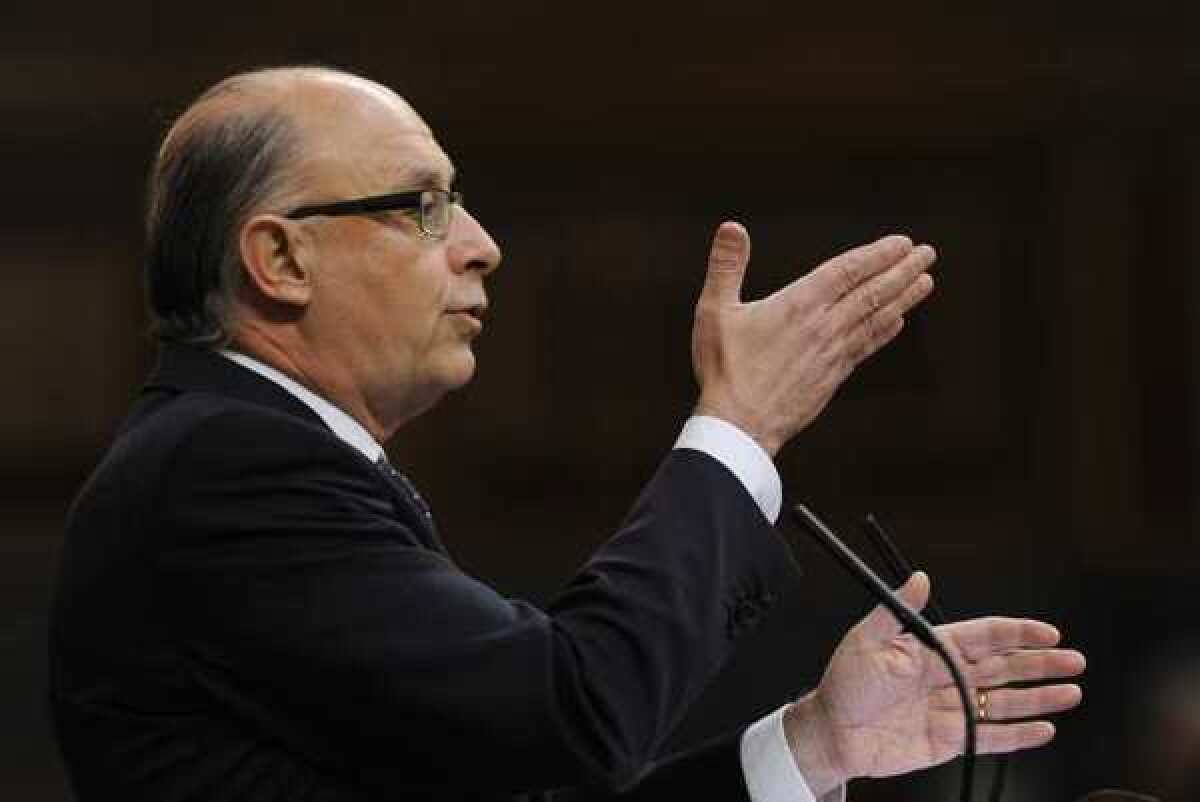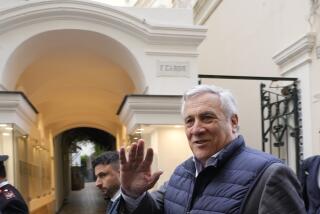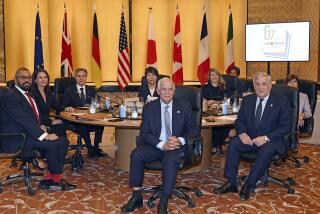G7 will âmonitorâ Eurozone situation; Spain issues plea for help

Finance ministers and central bank governors from the worldâs major economies convened on an emergency conference call Tuesday to discuss the situation in Greece and Spain â and seemed to come away without much to say.
The Group of Seven âreviewed developments in the global economy and financial markets and the policy response under consideration, including the progress towards financial and fiscal union in Europe,â according to an emailed statement from the U.S. Treasury following the call.
The outcome? Participants â which include the U.S., Germany, Japan, Britain, France, Canada and Italy â âagreed to monitor developments closelyâ before the Group of 20 summit in Los Cabos, Mexico, in two weeks.
Thatâs when Greece redoes its elections, which could determine whether the debt-laden country stays with the euro currency or defects to the drachma. The absence of any definitive plan caused the euro to slip against the dollar.
The White House said Monday that âmore steps need to be takenâ by Europe.
âThereâs no question that markets remain skeptical that the measures taken thus far are sufficient to secure the recovery in Europe and remove the risk that the crisis will deepen,â said Press Secretary Jay Carney at a briefing.
On Tuesday, Spain made its first plea for international help, asking for the kind of multi-national banking union that European Commission President Jose Manuel Barroso called for last week. Such a centralized system would rely on EU-wide supervision and rescue funds to deal with the regionâs economic turmoil rather than the current hodgepodge of national regulators.
Spanish Finance Minister Cristobal Montoro said that the country âhas problems when it comes to financing itself,â causing it to be shut out of credit markets. Spain has already nationalized the struggling Bankia institution, which last month said it needed 19 billion euros in government aid.
The European Central Bank will meet on Wednesday, where it may consider such efforts. Angela Merkel, Germanyâs chancellor, may be harder to persuade.
But as the Eurozone dithers over whether to tackle its crisis country-by-country or as a unified regional front, many are warning that thereâs not much time left. Financier George Soros in a speech this weekend said that officials have about three months to resolve the continentâs issues before the Eurozone becomes a reluctant âGerman empire.â
RELATED:
Euro near a 2-year low; EU calls for a âbanking unionâ
Spain: 5 banks downgraded, Bankia seeks 19 billion euros in aid
George Soros predicts euro will survive but that âGerman empireâ looms
Follow Tiffany Hsu on Twitter and Google+
More to Read
Inside the business of entertainment
The Wide Shot brings you news, analysis and insights on everything from streaming wars to production â and what it all means for the future.
You may occasionally receive promotional content from the Los Angeles Times.











